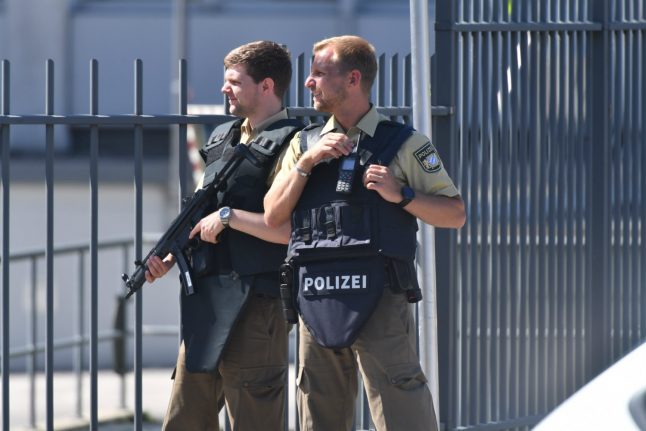Thirty-seven-year-old Alexander Bischof from the US state of Colorado has been identified as the shooter by various family members, broadcaster Denver7 reported on Wednesday.
On Tuesday a man shot a policewoman in the head after stealing her colleague's gun at Unterföhring station on the outskirts of Munich. Police have still not confirmed the identity of the attacker in the assault that also left two bystanders injured with bullet wounds.
The Local could not reach the Munich police department for comment on the shooter's identity.
The shooter is currently in a secure psychiatric unit after being apprehended shortly after fleeing the scene. Prosecutors have charged him with attempted murder.
According to Denver7, Bischof had arrived in Munich from Athens on Monday evening as part of a trip around Europe. He slept in Munich airport before travelling on the S8 metro line into the city on Tuesday morning.
Eyewitnesses have described how he was acting in an unusual way and talking to himself on the train.
He then suddenly, and without apparent cause, punched a commuter in the face who had just entered the carriage. Other passengers intervened, while the police were also alerted.
At Unterföhring station, two officers detained the suspect and took down his details in a routine manner, according to police chief Hubertus Andrä.
But then the suspect attempted to push the male officer in front of an oncoming train. In the ensuing scuffle, the man stole the officer’s gun and fired several shots at his female colleague, with one bullet wounding her in the head.
The 26-year-old officer remained in a critical condition in hospital on Thursday afternoon.




 Please whitelist us to continue reading.
Please whitelist us to continue reading.